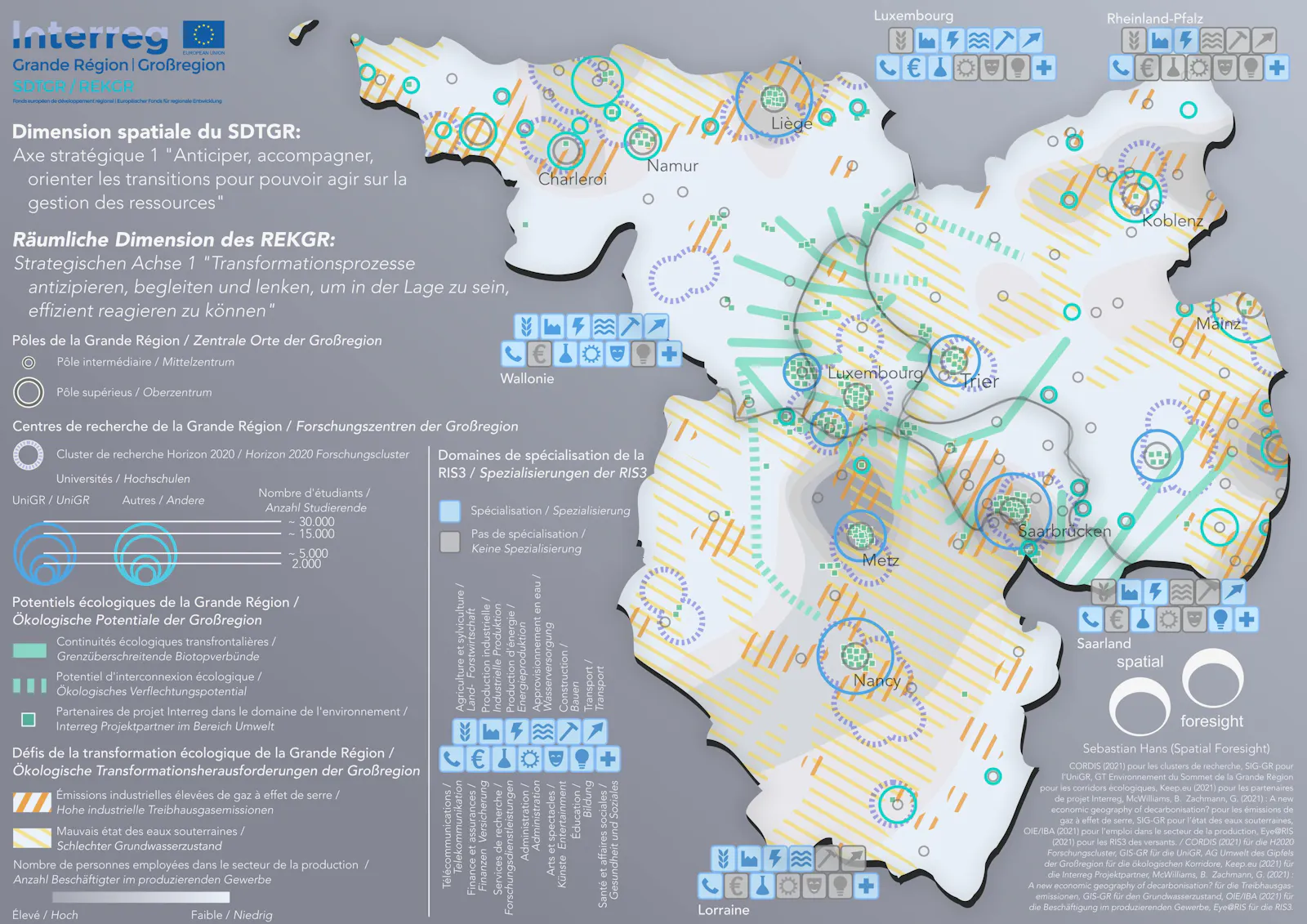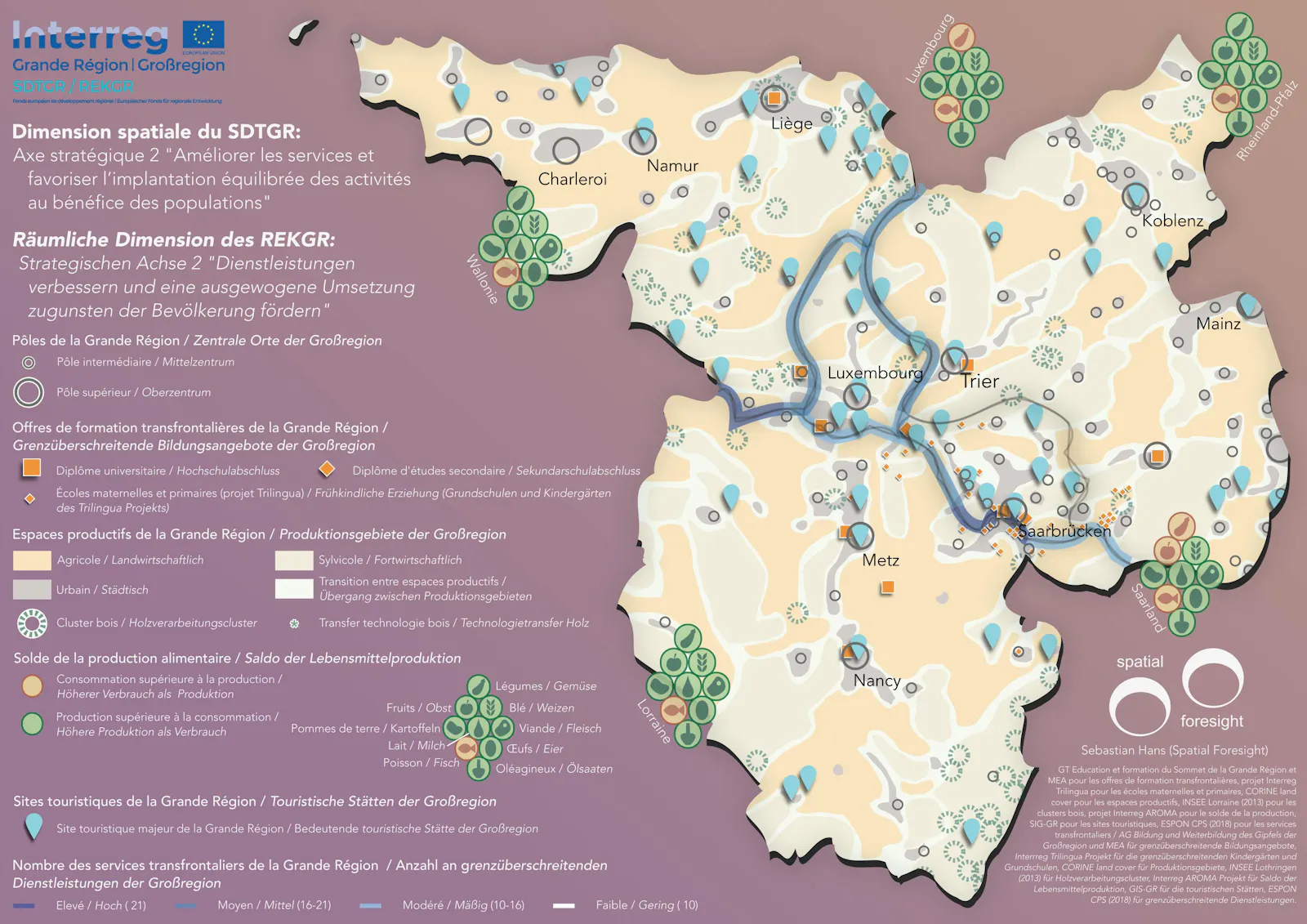Integrated maps supporting soft cross-border cooperation
May 2022
Cross-border spatial planning in most countries aims to align strategic spatial planning objectives across borders. After more than three decades of intensified cooperation in the European Union, such harmonisation still presents a major challenge between most countries. Different cultures, impacting spatial planning practices or simply different objectives for the same cross-border areas are just two reasons why cross-border spatial planning is a difficult endeavour.
To stimulate discussion and exchange on spatial planning, the cross-border area around Luxembourg, the Greater Region, developed a tool including integrated maps.
The ‘Spatial Planning Concept of the Greater Region (Si apre in una nuova finestra)' (French and German abbreviations are SDTGR or REKGR) is a cross-border spatial planning concept that has been developed and approved by decision-makers of all parts of the Greater Region. It lists 45 concrete operative measures under four strategic axes, to structure cross-border cooperation. Recently it has been complemented by five integrated maps to support the further discussion and territorialisation of SDTGR / REKGR measures. There is one map for each of the four axes and one map on key players of territorial cooperation.
Transformative processes
Strategic axis 1 ‘Anticipative, monitor and steer transformative processes, to allow for effective public responses’ describes the enhanced efforts needed to interlink research and development activities across the border. Protection of natural resources plays a role as well as to steer the transformative processes towards more renewable economic models in the Greater Region society. Many players of the Greater Region are already active in researching and testing transformative processes. These are the University of the Greater Region, a cross-border university but also private and public research institutes, which can be located by the areas with increased Horizon 2020 research project participation. The individual regions’ innovation strategies (RIS3) show potential for closer cooperation due to similar and complementing topics. In terms of ecological potential, the Greater Region has much to offer through the various biotope networks that cross borders. There’s still some potential for further connection and some Interreg projects are realised with an environmental focus, illustrating ongoing activities in transformative environmental processes. In contrast, large parts of the Greater Region feature important transformative challenges, which is illustrated by areas of high greenhouse gas emissions, areas with bad groundwater quality as well as areas with significant employment in industrial, more pollutive industries.

Goods & services
Strategic axis 2 ‘Improve services and support their balanced territorial rollout’ describes the future efforts needed for a balanced territorial development. Ensuring equal access to goods and services is a key political importance across national borders in the Greater Region. These include food production as well as services of general interest. Cross-border learning is important and supported by the many cross-border kindergartens, schools and university courses offered in the Greater Region. Food and good production near consumers will become more important in future, requiring efforts to close food production circuits, connecting production and consumption. Many areas already today produce sufficient food to cover domestic consumption. Forest economy has resulted in specialised knowledge in wood production clusters. High quality tourism services that can be found in all Greater Region are an interesting mean to boost internal tourism exchanges across borders. Despite the long tradition of organising cross-border services in the Greater Region, there are still areas with potential for further improvement.

Decarbonisation
To read this post you'll need to become a member. Members help us fund our work to ensure we can stick around long-term.
See our plans (Si apre in una nuova finestra)
Sei già un affiliato? Accedi (Si apre in una nuova finestra)


